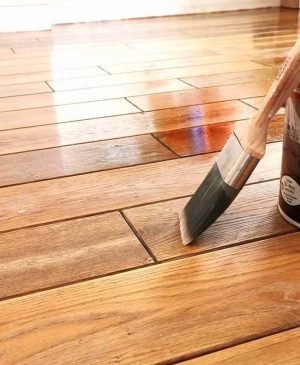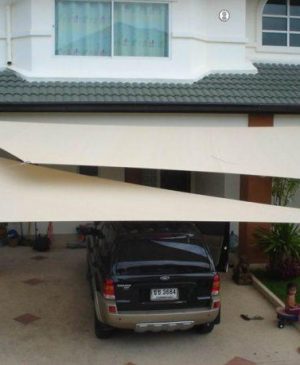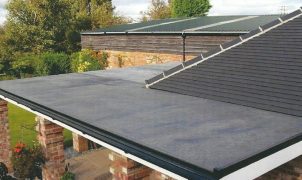In today’s fast-paced, tech-driven world, the integration of smart devices into our homes has moved from a luxury to a necessity. The beauty of these devices lies not only in the convenience they offer but also in their ability to transform how we manage energy, enhance comfort, and improve overall home efficiency. With the growing concern over energy consumption and the environment, adopting smart devices for energy efficiency has become a sustainable and intelligent solution for homeowners.
If you’re seeking to improve your home while embracing both technology and energy conservation, integrating smart devices is an effective approach. In this article, we’ll explore how smart devices can optimize energy use, enhance your home’s functionality, and reduce environmental impact, all while increasing your comfort and convenience.
The Rise of Smart Home Devices
Smart home devices have steadily entered the mainstream, thanks to the rapid development of technologies such as the Internet of Things (IoT) and artificial intelligence (AI). These devices can connect to a home’s Wi-Fi network and allow for remote control via smartphone apps or voice commands. The appeal of smart devices goes beyond their futuristic appeal. They are designed to integrate seamlessly into everyday life, offering benefits like automation, remote monitoring, and personalized settings.
What’s more, many smart devices focus on reducing energy consumption, which is both financially advantageous and environmentally responsible. By intelligently managing how energy is used in your home, these devices can significantly reduce waste and lower utility bills while promoting a more sustainable lifestyle.
Smart Devices for Energy Efficiency
When you think of improving energy efficiency at home, smart devices should be at the forefront of your plan. Below are key categories of smart devices that can help you achieve an energy-efficient home.
1. Smart Thermostats
One of the most impactful smart devices you can install is a smart thermostat. Devices such as Nest and Ecobee allow you to control your home’s temperature remotely using an app, and even better, they learn your routines and adjust temperatures accordingly. Smart thermostats have the ability to optimize heating and cooling in a way that minimizes energy use.
For example, a smart thermostat can automatically lower the temperature when you’re away from home or during nighttime, then raise it again just before you return or wake up. By avoiding unnecessary heating or cooling during unoccupied hours, a smart thermostat can significantly reduce your energy consumption and lower your heating and cooling bills.
2. Smart Lighting
Lighting is another major contributor to energy consumption in homes. Fortunately, smart lighting systems like Philips Hue and LIFX offer a simple and effective solution. These systems allow you to control the brightness, color, and schedule of your lights through a smartphone app or voice commands.
Not only can you set lighting schedules to ensure lights are only on when needed, but you can also program your lights to automatically dim when adequate natural light is available. Additionally, with motion sensors, lights can be set to turn off when rooms are no longer in use. These features ensure that energy is only used when necessary, promoting a more efficient and cost-effective way of lighting your home.
3. Smart Plugs and Power Strips
Many devices, such as televisions, coffee makers, and even phone chargers, continue to draw power when they are not in use—this is known as “phantom load.” Smart plugs and smart power strips can help mitigate this issue by allowing you to control when these devices are powered on and off remotely.
For example, you can set up smart plugs to turn off certain electronics when they’re not in use or at a certain time of day. Additionally, if you leave for work and forget to unplug a device, you can simply do so remotely via an app on your smartphone. These small yet effective devices help cut down on wasted electricity and improve overall energy efficiency.
4. Smart Appliances
Smart appliances have become an essential part of modern homes, with refrigerators, washing machines, dishwashers, and even ovens now equipped with smart technology. Brands like Samsung and LG offer appliances that can connect to Wi-Fi and can be controlled remotely.
These devices allow you to monitor and control energy consumption, providing feedback on how efficiently they are operating. For example, a smart washing machine can adjust its settings based on the load size, water temperature, and spin cycle, saving both energy and water. Similarly, smart refrigerators can alert you when the door is left open, helping you avoid energy loss.
5. Smart Watering Systems
Watering your garden or lawn efficiently is another key aspect of managing home energy. Traditional irrigation systems often waste water, running even when it rains or when the soil is already moist. Smart irrigation systems, such as those offered by Rachio, take into account weather conditions, soil moisture, and plant types to optimize the watering schedule.
By using weather data and adjusting the watering schedule in real-time, these devices help conserve water and energy. You’ll also notice a reduction in your water bill, as these systems ensure water is only used when necessary.
Voice-Controlled Systems and Automation
While individual devices are essential, the real magic of a smart home lies in automation and integration. Voice-controlled systems like Amazon Alexa, Google Assistant, and Apple HomeKit enable you to control all your smart devices through voice commands or pre-set routines.
For instance, you can create a “Good Morning” routine, where your thermostat adjusts to the ideal temperature, lights brighten gradually, and your coffee machine starts brewing—all triggered by a single voice command. By syncing different smart devices into a cohesive system, you can further optimize energy use, convenience, and comfort.
The true potential of smart home devices is unlocked through automation. By setting routines that sync devices like lights, thermostats, and appliances, you’ll ensure that your home is using energy as efficiently as possible without constant manual intervention.
Benefits of Smart Devices for Your Home
The incorporation of smart devices into your home can lead to significant improvements in both your lifestyle and your energy usage. Here are some of the most compelling benefits:
-
Energy Savings: The primary advantage of smart home devices is their ability to reduce energy consumption. From lowering your heating and cooling costs to reducing water usage, the savings can add up quickly. With automation and intelligent scheduling, devices work in tandem to eliminate unnecessary energy waste.
-
Convenience: The ability to control your home’s devices remotely offers unparalleled convenience. Whether you’re turning on the lights, adjusting the thermostat, or checking if you left the door unlocked, everything is within reach with a smartphone or voice command.
-
Increased Comfort: Smart home devices can be tailored to your preferences, creating a living environment that’s always just right. Whether you prefer a cool, dimly lit room for reading or a warm, bright room for entertaining, smart devices can be set to adjust automatically to your needs.
-
Environmental Impact: By reducing energy consumption and minimizing waste, smart devices contribute to a more sustainable home. This can help you lower your carbon footprint while also taking steps toward a greener future.
Conclusion
Improving your home with smart devices is a powerful way to enhance convenience, comfort, and energy efficiency. From controlling your thermostat and lighting to monitoring appliances and irrigation systems, smart technology empowers homeowners to make more informed decisions about energy consumption. The result is not only a more cost-effective home but also one that’s more environmentally conscious.
By thoughtfully integrating smart devices into your home, you’ll create a living space that adapts to your needs, promotes sustainability, and simplifies your life. Whether you’re aiming to lower your utility bills, create a more comfortable environment, or reduce your environmental impact, smart devices are a crucial step toward transforming your home into a modern, energy-efficient haven.


















